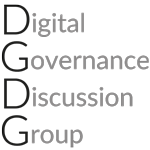By Regine Grienberger and Lilian Georgieva-Weiche.
Global endeavors to achieve the UN Sustainable Development Goals (SDGs) are increasingly gearing up speed and digital technologies together with online connectivity are among the key agents for change. All efforts should have one common vision in mind: one where all citizens of the world have access to a safe, enriching, and productive online experience at a reasonable cost.
However, as we try to bridge the digital divide, we face a crucial balancing act: While digital transformation promises substantial economic and social benefits, it also opens the door to heightened cybersecurity risks, with significant political and economic implications for all countries alike.
The dual challenge of fostering cyber resilience alongside digital growth is not just an imperative for economic stability, but a cornerstone for building trust in digital services. Addressing this tension head-on is pivotal in our journey towards a more inclusive, secure, and sustainable digital future for all.
Therefore, Germany attaches urgency and priority to cyber capacity building. Most importantly, we see it as a cross-cutting issue. It is about time to further bridge the gap between cyber resilience building and development communities. Cybersecurity must be mainstreamed into the broader framework of development work. Otherwise, reaching the SDGs could move even further away for some countries who are abused by cybercriminal or state actors.
The Accra Call for Cyber Resilient Development endorsed at the Global Conference for Cyber Capacity Building in 2023 summarizes this endeavour in the name of many participating stakeholders from South and North of the Globe.
The barriers on this path, among others, are manyfold and often come down to either lacking access as well as resources or skills and awareness. Statistics show that many of the challenges that we currently face on the path to building cyber resilient societies are the same for all states alike: Lack of human resources, insufficient buy-in from senior leadership and insufficient understanding of cybersecurity with its importance for facilitating sustainable and secure digital development.
As a promoter and funder of cybersecurity capacity building in many regions of the world, Germany strongly believes that a whole-of society and whole-of-government approach is essential to overcome these barriers and assist other countries in closing the gaps they face in building the cyber resilience required to support their sustainable development goals.
Germany’s cyber capacity building programming is therefore guided by the UN principles for cyber security capacity building to ensure that our work respects human rights, fundamental freedoms, is gender-sensitive and inclusive and non-discriminatory.
Moreover, capacity building can be an important enabler for implementing the UN framework of responsible state behaviour in cyberspace.
Secondly, to put our guiding principles into practice, the first step throughout all of our cyber capacity building activities is to always follow a partnership-approach. Dialogue with our valued partners during the design-phase of future initiatives for cooperation is the key to identifying the real needs on the ground based on an inclusive “demand-driven” approach.
Applying these standards also guarantees that local ownership provides capacity building engagement with a sustainable foundation and that it becomes the two-way street it is supposed to be.
Ultimately, as Europeans by heart, Germany is a firm believer in seeking to enhance regional cooperation, which we deem a key requirement for states to effectively overcome cyber capacity gaps and respond to malicious ICT activities.
Therefore, one key lesson of our cyber capacity building programming be it in West Africa or the Western Balkans, is that cyber-attacks defy all borders and the best provision to withstand any cyber threat is by playing cybersecurity as a regional team sport that allows all stakeholders involved to go beyond national borders and limitations as they seek to overcome the complex security challenges we are facing in cyberspace.
Last but not least, as cyberspace is increasingly becoming a domain of geopolitical competition and attacks against national security, the need to build trust and confidence among states in cyberspace becomes ever more prominent.
Precisely against this background, at the core of Germany’s engagement of building cyber resilience for sustainable development, lies the goal to ensure that the voices of all states, especially those that are underrepresented, in our multilateral cyber world are being heard.
This is why Germany recently kicked off its cooperation with the African Union Commission by supporting a cyber diplomacy training at its premises. This joint endeavor marks yet another milestone – after the recent development of a common African position on the application of international law in cyberspace – on Africa’s journey towards an open, stable, accessible and safe internet and cyberspace for all.
These steps demonstrate Africa’s dedication to fostering an environment that promotes cybersecurity, respects human rights online, encourages innovation, and ensures equitable digital opportunities for all African citizens.
Perhaps this example can inspire #us to learn from each other by seeing how a continent comes together, despite facing significant, divergent cybersecurity challenges due to very different political, social and cultural contexts.
Maybe this can lead to more states around the world prioritizing cybersecurity and cyber diplomacy like the AU did as part of its Agenda 2063 with its blueprint for sustainable socio-economic development. Perhaps, most importantly though, it can serve as a reminder to all of us as part of the international community to strive to work together by ensuring that everyone has a seat at the table and no country is left behind.
